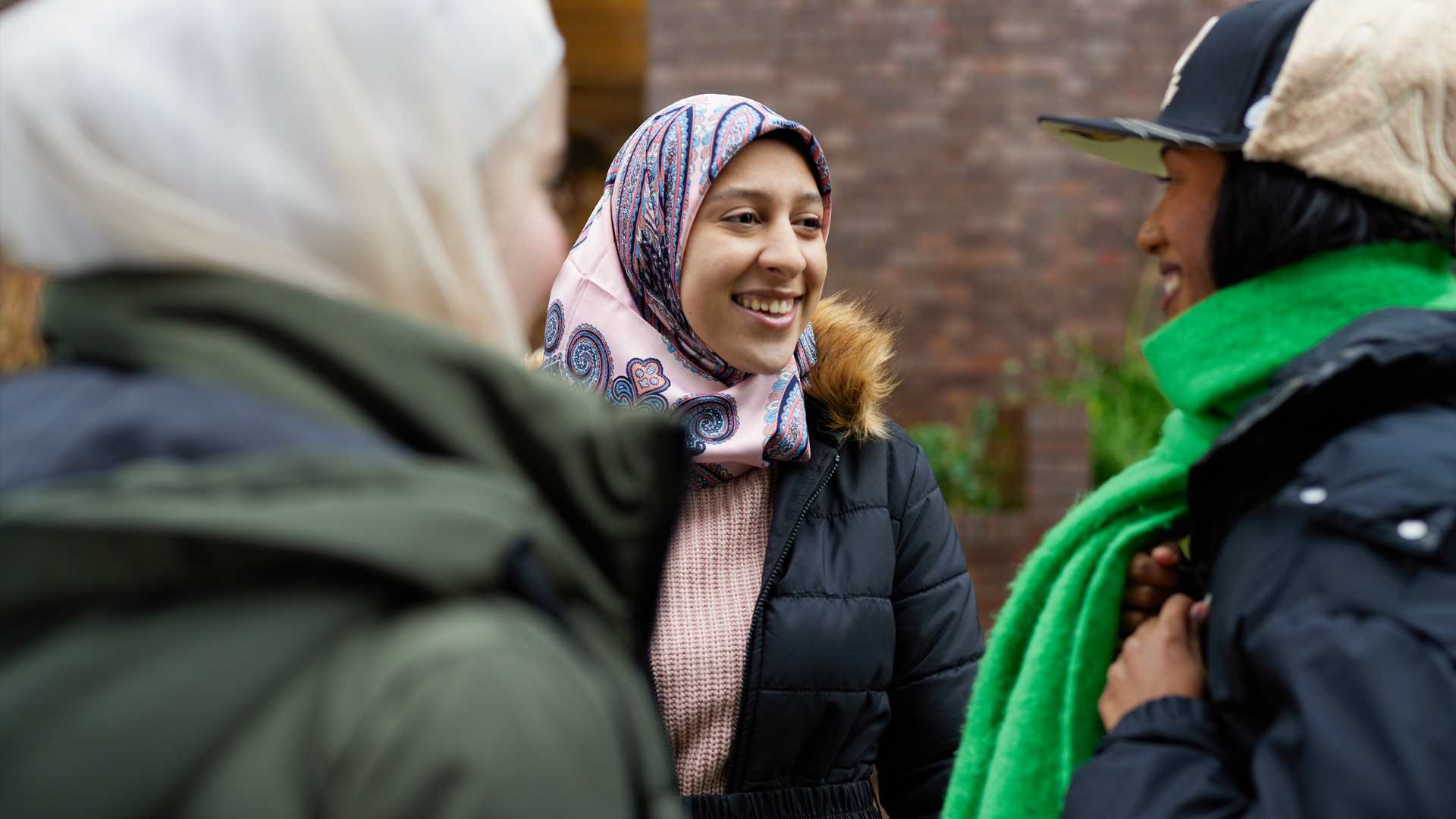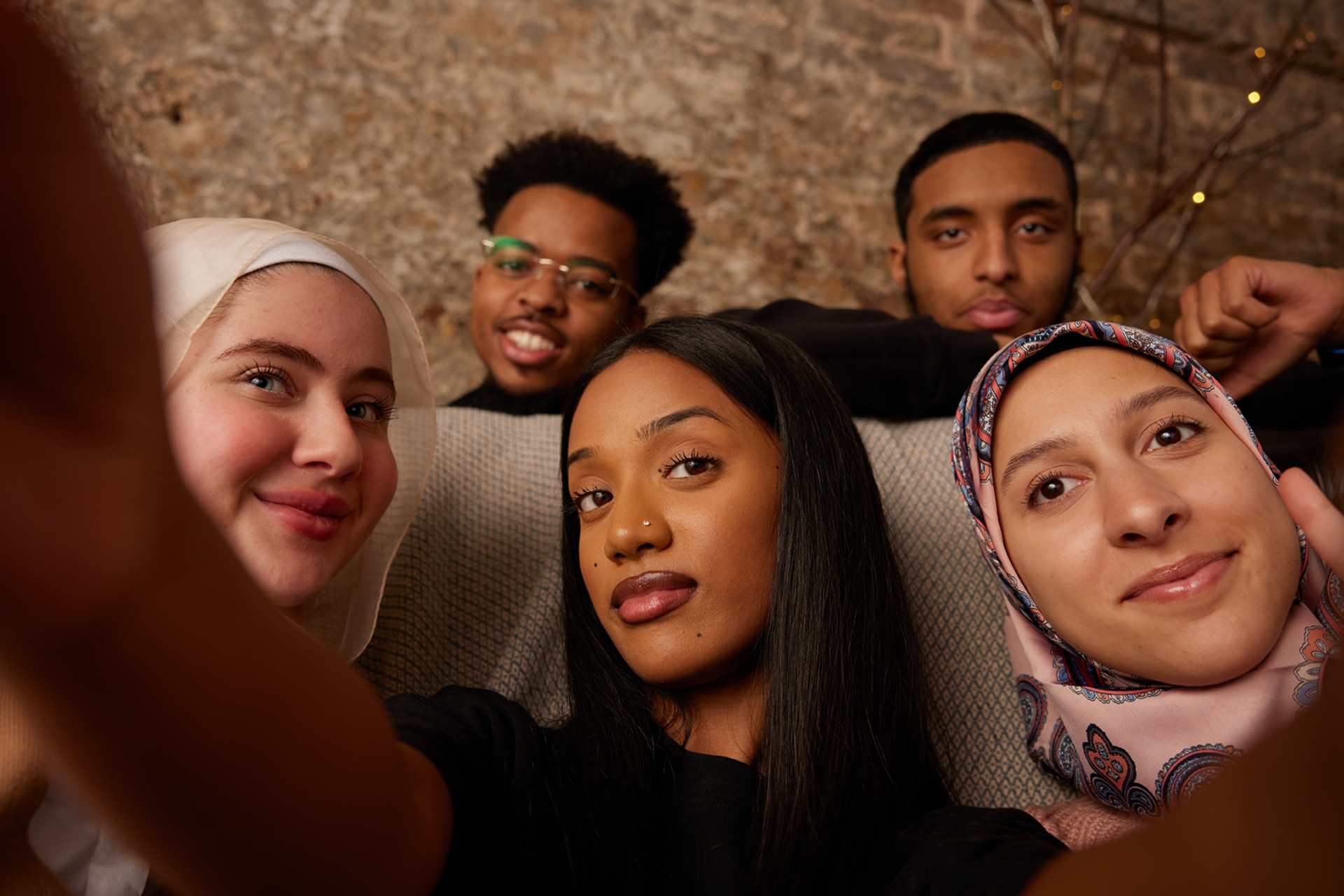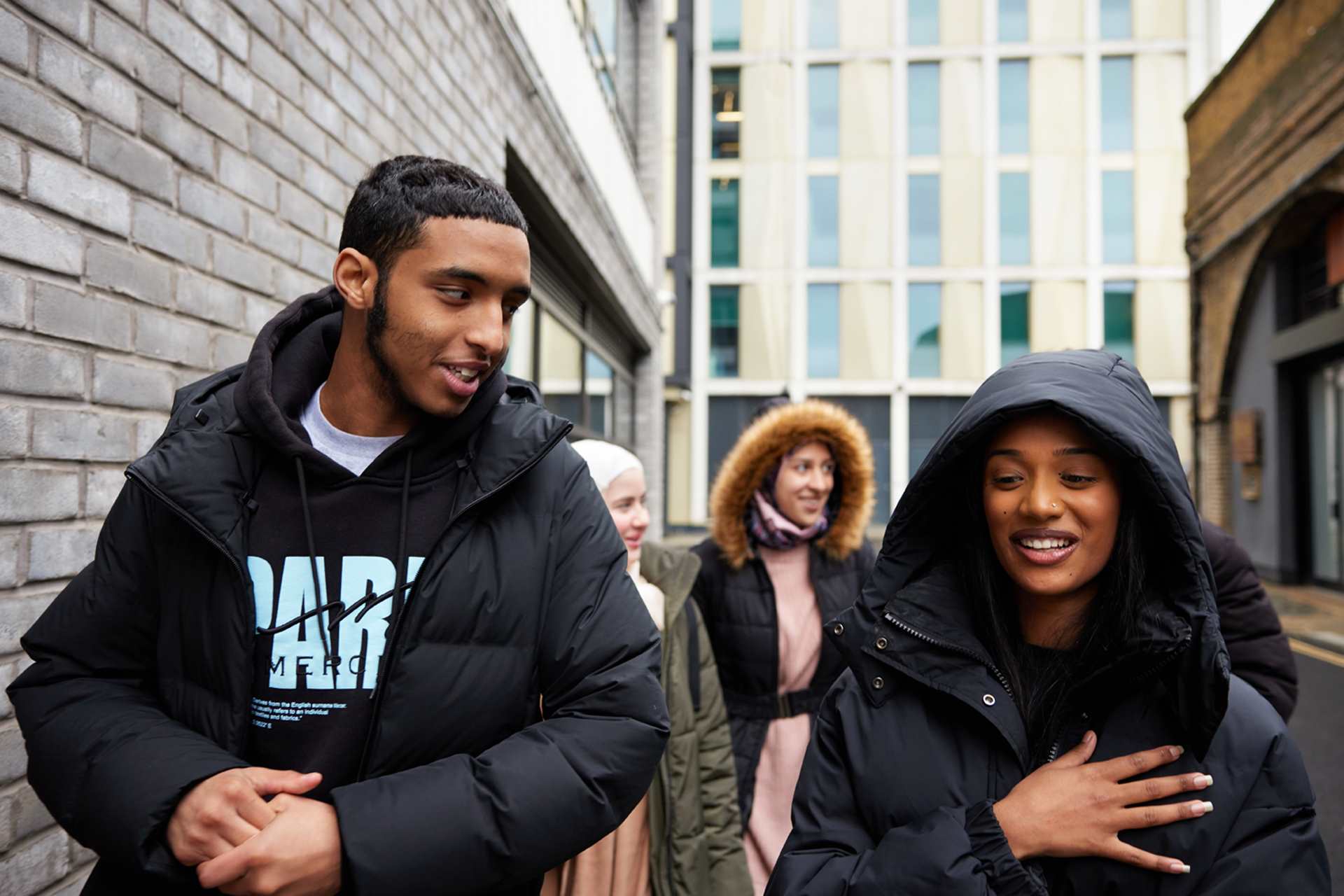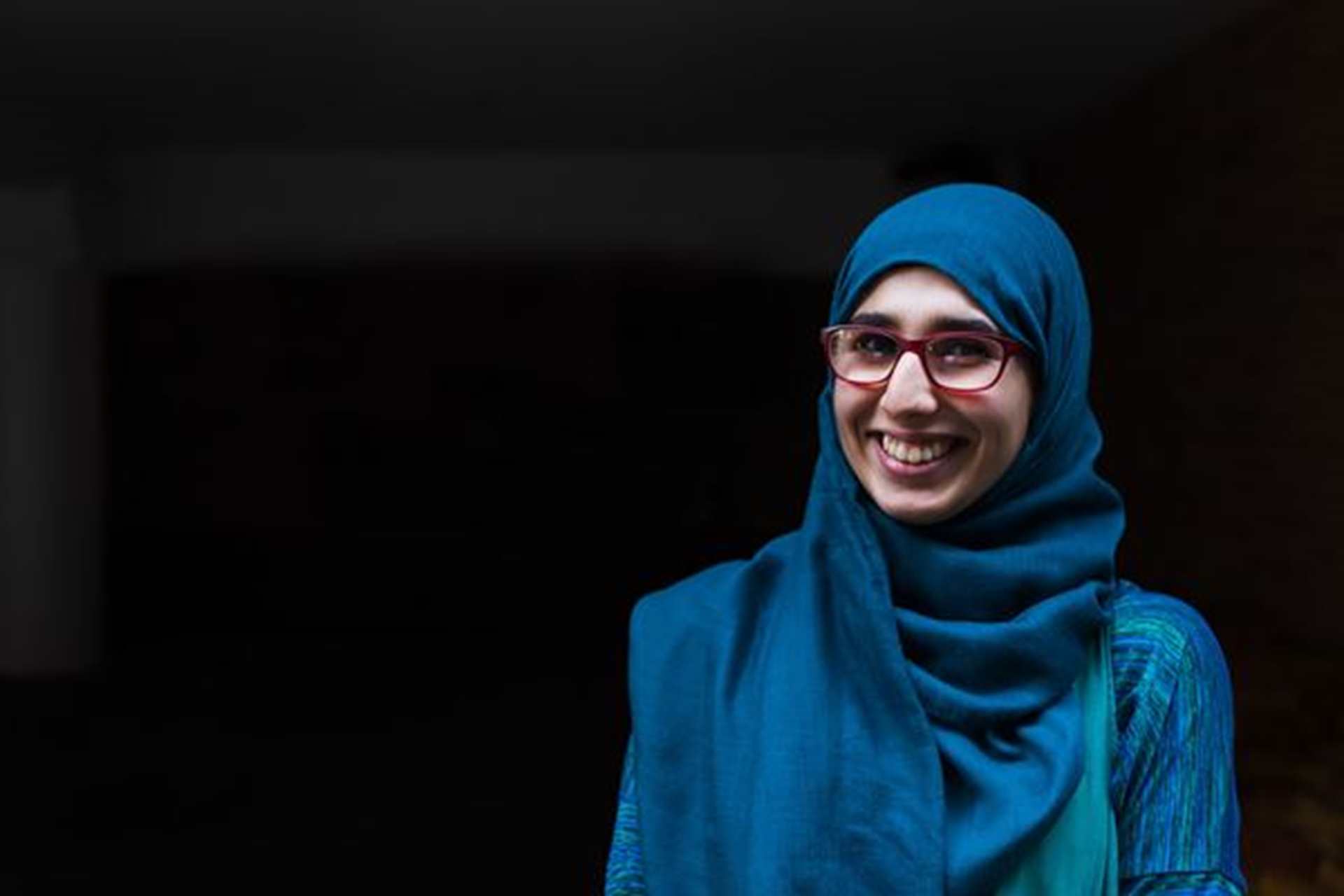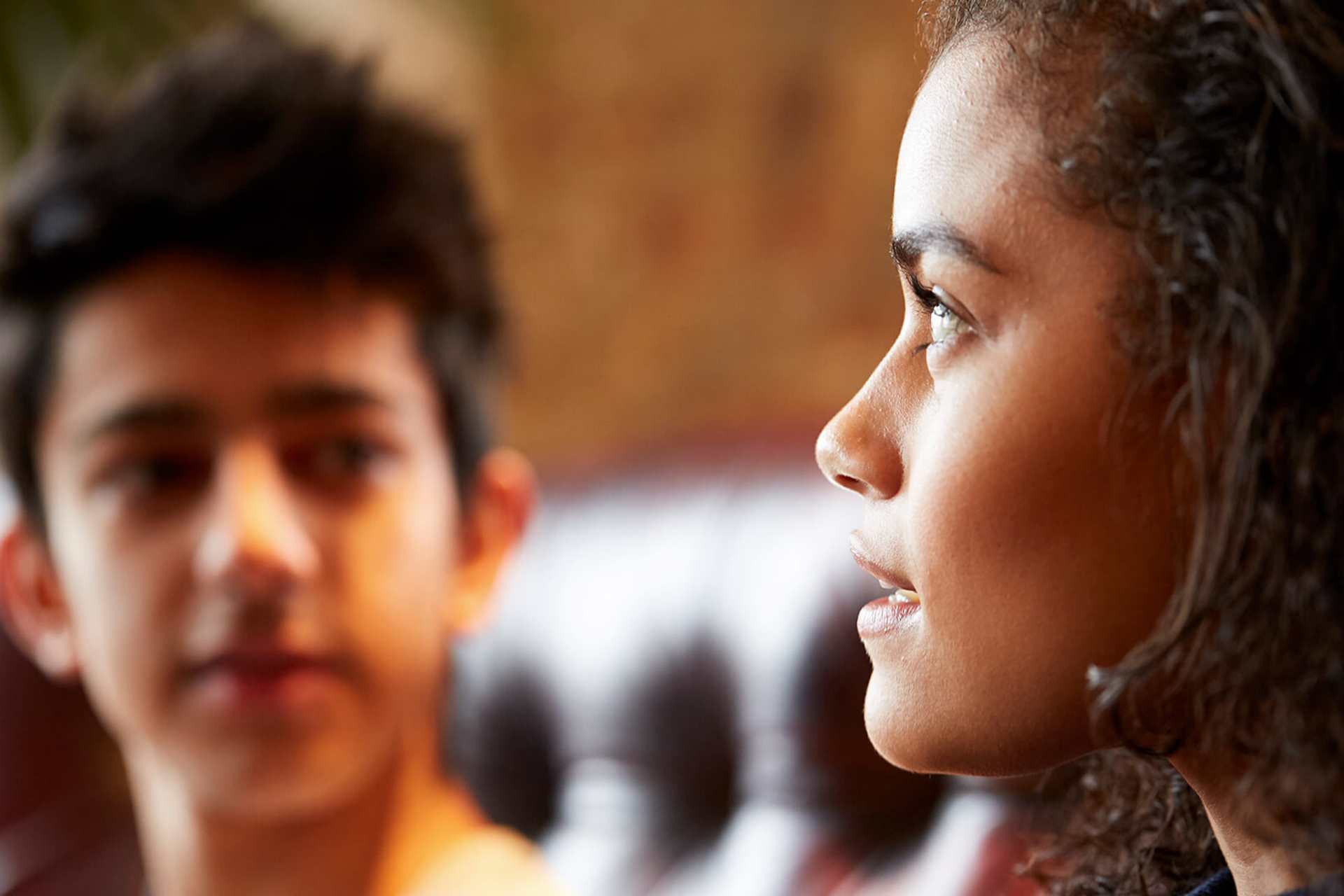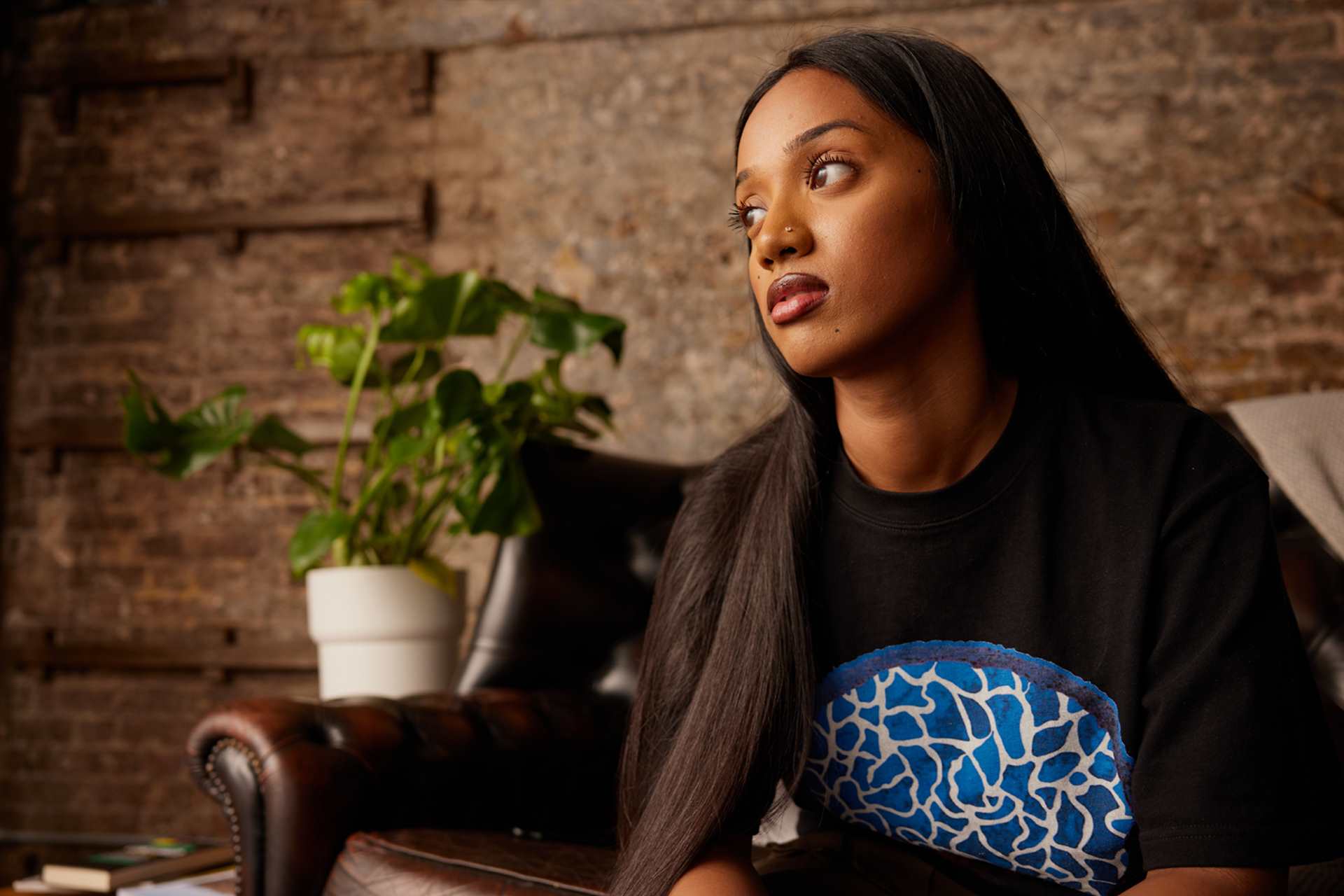Topics mentioned: Muslim mental health, anxiety, self-harm, racism and mental health
About: Our blogger explains how societal pressures and misconceptions of her faith impact her mental health as a young Muslim woman.
This blog contains references to suicidal feelings, self-harm and abuse. Please do not read on if you think the content may be triggering for you. If you are currently struggling with your mental health, please visit our find help page for information, advice and guidance on where to get support.
Muslimahs are often hit with harsh advice and irritatingly apparent double standards.
Being a Muslim woman has its perks, but it also has its downfalls. I love being a Muslim woman because I get to represent my religion, which has a focus on the wellbeing of the world at large.
But sometimes, I hate being a visible Muslim woman because of the pressures that come with it. Muslimahs can never seem to win. Some people try to pack us into a box and label us as ‘oppressed’. Others are quick to judge and scrutinise everything we do.
A common misconception is that Muslimahs who wear the hijab are perfect but in reality, we're just trying to do what we can. In Islam, we are encouraged to advise others sincerely, following appropriate guidelines.
However, with the rise of social media, some people have taken to expressing their views in a rather aggressive way. Muslimahs are often hit with harsh advice and irritatingly apparent double standards.
I wanted to fit in with my peers, but this became difficult when I started to embrace and practise my faith.
Muslimahs and anxiety
I’ve had social anxiety for a long time. If I had to pinpoint when things started to get bad, I would say that it was probably around the age of 13. I wanted to fit in with my peers, but this became difficult when I started to embrace and practise my faith. It set me apart from many of the people that I was trying to fit in with.
Something that I failed to realise back then is that, regardless of my faith, I would never really fit in with my peers, as we were all unique and still trying to develop our sense of self. I felt anxious when putting on my hijab because I thought that people would view me differently and this made me fixate on negative thoughts.
I ended up catastrophising pretty much everything. I thought I would get attacked almost every time I went out and that I would be verbally abused. I felt like my negative thoughts were really and truly only fuelled by me and I was caught in a constant negative cycle.
Being ungrateful isn't a very Muslim trait and when I thought about this I felt like a failure.
The 's' words
Suicide and self-harm. These two words are kept quiet in most communities as they're still taboo. When I experienced suicidal feelings I always felt guilty. ‘Why couldn't I just be grateful?’ I would think to myself, ‘many people have it worse than me.’
Being ungrateful isn't a very Muslim trait and when I thought about this I felt like a failure. Like many religions, Islam also considers suicide to be a sin, a big one at that, but it is a nuanced topic that needs to be handled with care. I started self-harming around the age of 13.
I was overwhelmed by life and felt that I had no one to turn to. Initially, this self-destructive habit began as a method to keep myself afloat. I almost saw it as a way to keep myself alive.
As difficult as it seems now, you won't feel this way forever - it will not be a constant.
Light at the end of the tunnel
As I grew older and began to delve into Islam and better my relationship with Allah, my perspective on life shifted - it didn't happen overnight but it did happen. This doesn't mean that you won't struggle. Struggling is a part of life and there will be days when you don't feel as strong, but determination and faith are key.
The Prophet (peace be upon him) said, ‘No fatigue, nor disease, nor sorrow, nor sadness, nor hurt, nor distress befalls a Muslim, even if it where the prick he receives from a thorn, but that Allah expiates some of his sins for that.’ Your pain has a purpose and so does your life.
As difficult as it seems now, you won't feel this way forever - it will not be constant. There are specialised organisations that offer faith-sensitive support such as the Muslim Youth Helpline and Inspirited Minds. As Muslims, we believe that life will be full of tests, and although you don't get to choose your tests, you do get to pick your response.
I am proud that I can represent my religion as a Muslim woman despite the challenges that I've faced and I hope that those reading this are too.
May Allah ease the pain of the people and grant us ease, Ameen.
As Muslims, we believe that life will be full of tests, and although you don't get to choose your tests, you do get to pick your response.
Mental health app recommendations
There are two apps that have helped me when I've struggled with my mental health.
The first is Calm Harm which helps you track and monitor your self-harm behaviours. It also has many activities that can help you stop harming yourself, such as journalling and breathing exercises.
The second is Dhikr & Dua, an app that helps to encourage remembrance of Allah with many prayers and reminders. It can take you to specific prayer/supplications based on your mood.
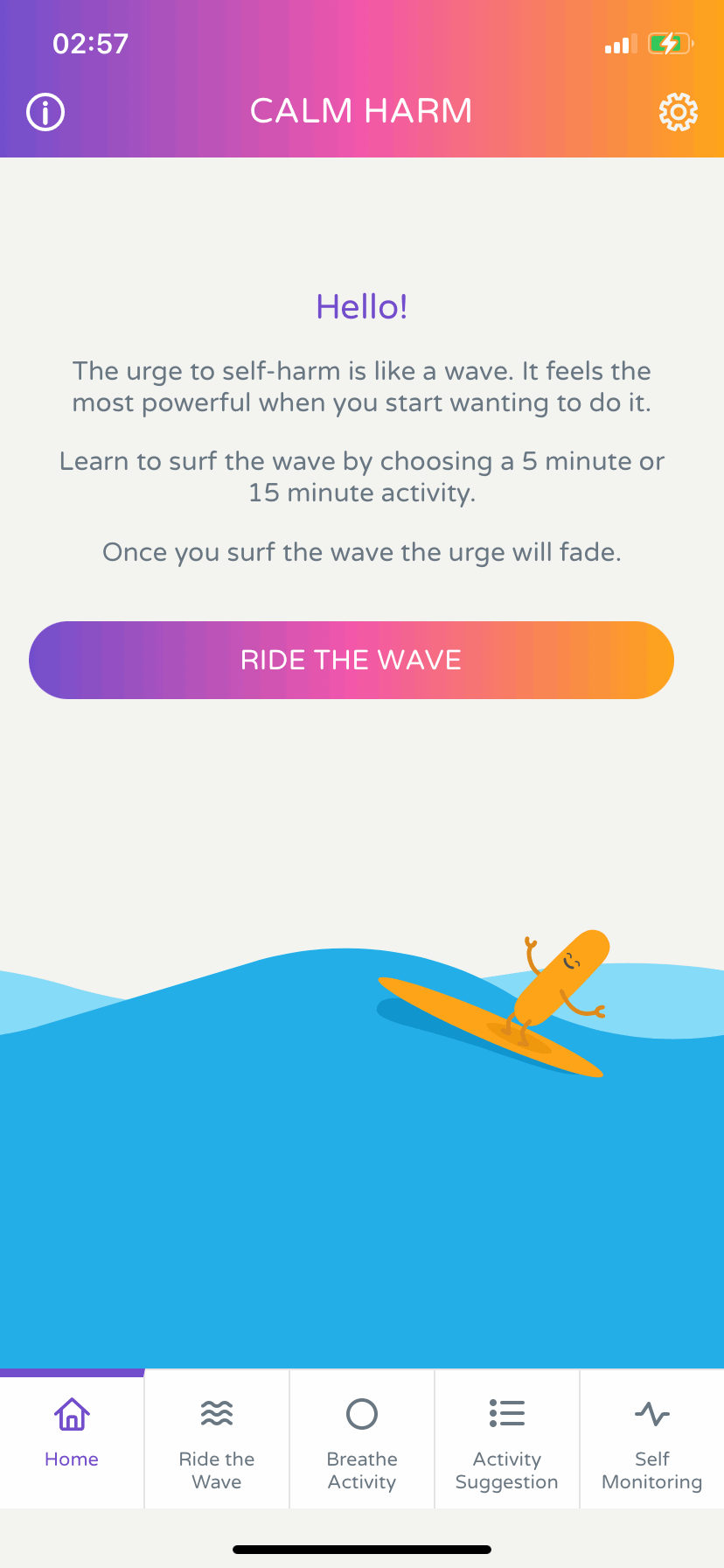
Screenshot of Calm Harm app homepage.
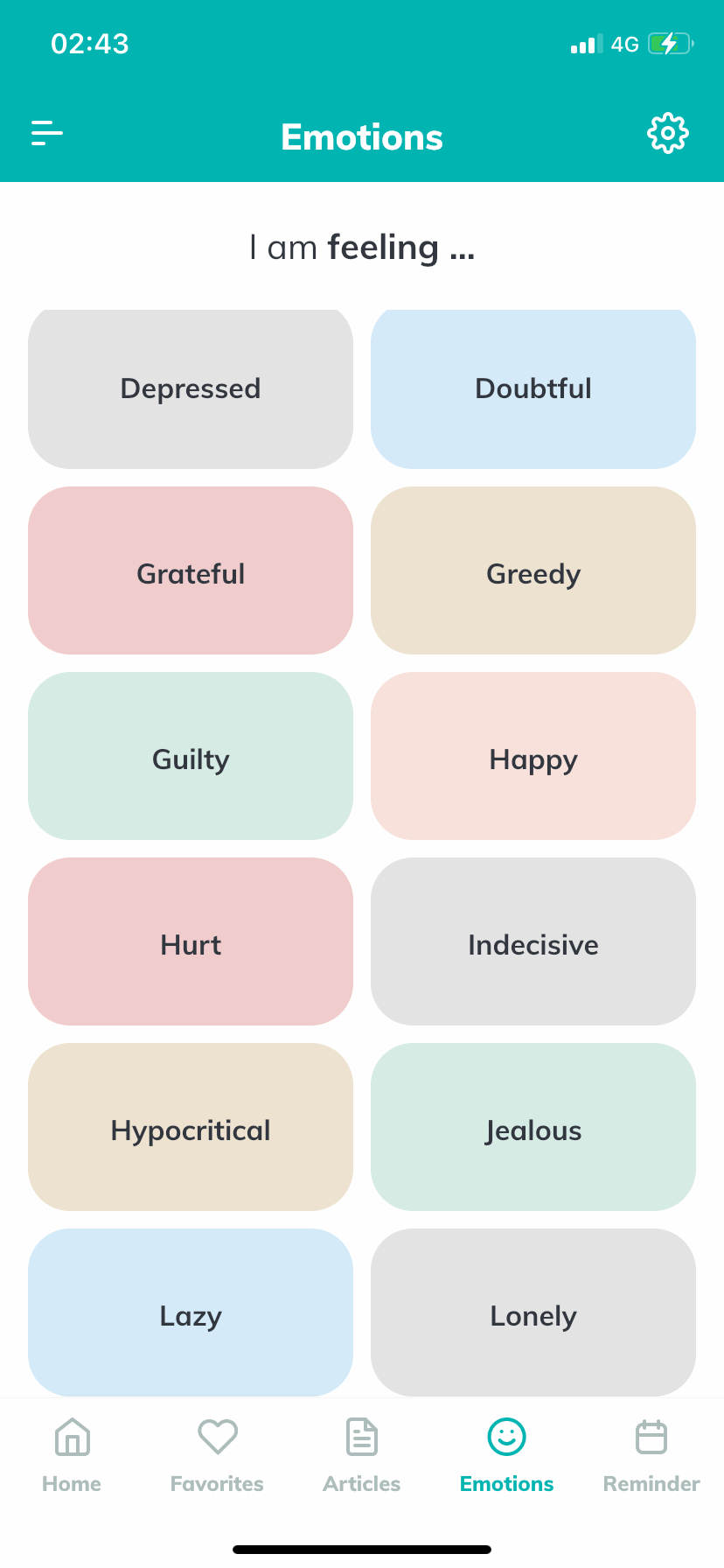
Screenshot of Dhikr & Dua app showing different emotions to choose from.
I am proud that I can represent my religion as a Muslim woman despite the challenges that I've faced and I hope that those reading this are too.
More information and advice
We have tips and advice to help you find the support you need. Take a look at our guides.
Where to get help
However you're feeling, there are people who can help you if you are struggling. Here are some services that can support you.
-
Muslim Youth Helpline
Provides faith and culturally sensitive support for young Muslims.
Online chat service available during opening hours.
- Opening times:
- 4pm - 10pm, 365 days a year
-
Calm Harm
A free app providing support and strategies to help you resist or manage the urge to self-harm.
Can be downloaded from Google Play or App Store.
-
Samaritans
Whatever you're going through, you can contact the Samaritans for support. N.B. This is a listening service and does not offer advice or intervention.
- Opening times:
- 24/7
